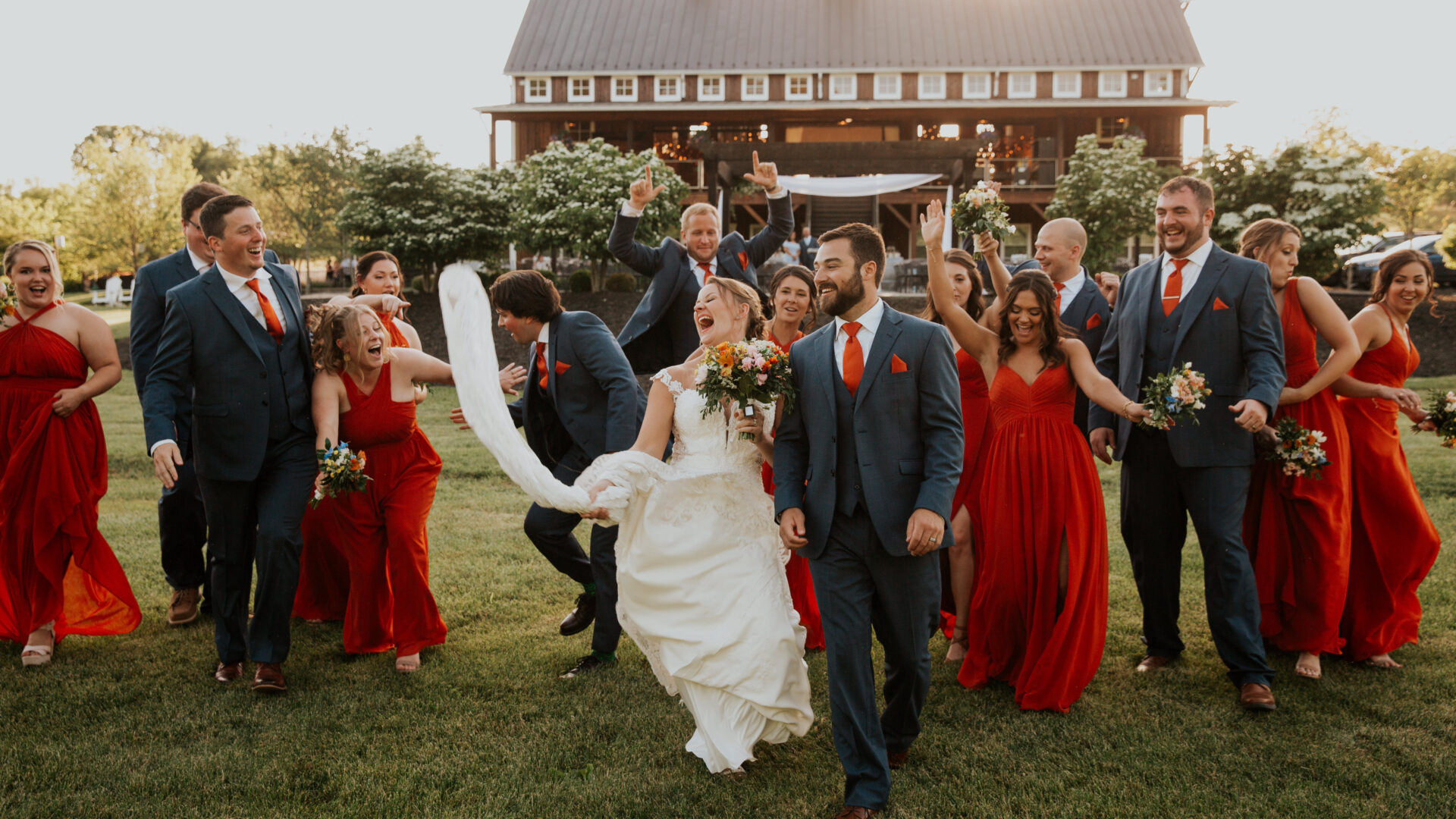Are you wondering who pays for the wedding ceremony and reception? What about the alcohol—who covers that?
Planning a wedding can feel like a whirlwind of expenses, leaving couples unsure of who is responsible for each part. At Zion Springs, we've been hosting weddings since 2010, and we're dedicated to helping couples understand the financial side of their special day. In this article, we'll cover common questions about wedding expenses, from attire to alcohol, and offer insights to help you plan confidently and avoid potential financial stress.
Traditional Wedding Payment Responsibilities: Who Covers What?
While weddings are full of romance and joy, they also come with significant financial responsibilities, often around $60,000. Historically, the bride's family covered most expenses, a tradition linked to the dowry system. Today, though traditions remain, payment responsibilities have become more flexible.
Traditionally, the bride’s family covers the ceremony and reception, including:
- Invitations and stationery
- Catering and cake
- Entertainment
- Attire for the bride, bridesmaids, and flower girl
- Flowers and decorations
- Photography and videography
The groom’s family typically handles:
- Rehearsal dinner
- Marriage license
- Officiant fees
- Groom’s, groomsmen’s, and ring bearer’s attire
- Alcohol for the reception
However, modern couples are increasingly sharing costs or adapting these roles based on their circumstances and preferences. Flexibility is key.
Modern Trends in Wedding Cost-Sharing
In recent years, more couples are choosing to fund their own weddings, giving them greater control over their plans and budget. This shift allows for more personalized celebrations without external influence.
In other cases, families collaborate financially, with both sides contributing to create a meaningful and shared experience. This approach fosters support and cooperation, often leading to a smoother planning process.
Additional Wedding Expenses and Responsible Parties
Additional wedding expenses, such as bridal party attire, travel and accommodation for out-of-town guests, pre-wedding events, and wedding favors, often fall on individuals or the couple, depending on the specific arrangements and agreements made.
Bridal Party Attire
- Bridesmaids and groomsmen typically pay for their own outfits.
- Couples or families may help with costs if the attire is expensive.
Travel & Accommodation for Out-of-Town Guests
- Guests generally cover their own travel.
- Couples can negotiate hotel deals and arrange shuttles for convenience.
Pre-Wedding Events (Engagement Party, Bridal Shower, Bachelor/Bachelorette Parties)
- Usually financed by the bridal party or close friends.
- Each person typically covers their own expenses for destination events.
Wedding Favors & Thank-You Gifts
- Couples usually cover the cost of wedding favors or simplify with small tokens.
- Thank-you gifts for the wedding party are paid for by the couple.
Ultimately, deciding who pays for these additional costs can sometimes be tricky or uncomfortable.
Discussing Wedding Finances
Open conversations about finances are crucial for setting clear expectations. Couples and families should discuss financial responsibilities early to avoid misunderstandings.
Wedding planning often involves balancing different family dynamics, so addressing expectations with care is important. Establishing a realistic budget and using technology, like wedding planning apps, helps couples track expenses and make informed decisions.
Many couples fund their weddings through savings, family contributions, or, in some cases, loans or credit cards. Careful planning can help manage potential debt.
Use our spreadsheet to track expenses and assign responsibilities for an organized approach.
Wrapping Up Your Wedding Budget
As you’ve explored the financial aspects of planning a wedding, it's clear that having open conversations and setting realistic expectations are key to a smooth planning process. We’ve covered everything from traditional payment roles to modern cost-sharing trends, budgeting tools, and tips for managing additional expenses.
At Zion Springs, we’ve helped guide couples through their wedding planning since 2010. Our experience, combined with a passion for educating and supporting couples, makes us well-placed to assist with your planning process.
For more helpful tips and insights, explore the articles in the Answers and Advice section of our website.


7 Wedding Reception Regrets You’ll Want to Avoid—And How to Do It Right


Jennifer and Alex’s Spring Wedding


6 Things Wedding Guests Don’t Care About










